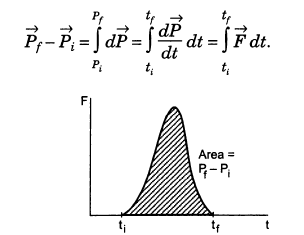IB PHYSICS HL(Higher level) – 2024 – Practice Questions- All Topics
Topic 2.4 – Momentum and impulse
Topic 2 Weightage : 9 %
All Questions for Topic 2.4 – Newton’s second law expressed in terms of rate of change of momentum , Impulse and force–time graphs , Conservation of linear momentum , Elastic collisions, inelastic collisions and explosions
Question
Two identical blocks, each of mass m and speed v, travel towards each other on a frictionless surface.

The blocks undergo a head-on collision. What is definitely true immediately after the collision?
A The momentum of each block is zero.
B The total momentum is zero.
C The momentum of each block is 2mv.
D The total momentum is 2mv.
▶️Answer/Explanation
Ans: B
Ref: https://www.iitianacademy.com/ib-physics-topic-2-mechanics-2-4-momentum-and-impulse-study-notes/
Total Momentum \( = m_1u_1+m_2u_2 = mu+m(-u) =0\)
Momentum is always conserved whether it is before collision , during collision or after collision
Question
The momentum of an object changes by Δp in a time Δt. What is the impulse acting on the object during this change?
A. Δp
B. Δp Δt
C. \(\frac{{\Delta p}}{{\Delta t}}\)
D. zero
▶️Answer/Explanation
Markscheme
A
Impulse
When two bodies collide, they exert forces on each other while in contact. The momentum of each body is changed due to the force on it exerted by the other. On an ordinary scale, the time duration of this contact is very small and yet the change in momentum is sizeable. This means that the magnitude of the force must be large on an ordinary scale. Such large forces acting for a very short duration are called impulsive forces. The force may not be uniform while the contact lasts.
The change in momentum produced by such an implusive force is

Question
A cyclist accelerates in a straight line. At one instant, when the cyclist is exerting a forward force of 40 N, the air resistance acting on the cyclist is 10 N.
What is the rate of change of momentum of the cyclist at this instant?
A. 10 kg m s–2
B. 30 kg m s–2
C. 40 kg m s–2
D. 50 kg m s–2
▶️Answer/Explanation
Markscheme
B
Newton’s SECOND LAW
Question
A toy car of mass 0.15 kg accelerates from a speed of 10 cm s–1 to a speed of 15 cm s–1. What is the impulse acting on the car?
A. 7.5 mN s
B. 37.5 mN s
C. 0.75 N s
D. 3.75 N s
▶️Answer/Explanation
Markscheme
A
Impulse = Change in Momentum = \(m(v_2-v_1)\) = \(0.15 ( 15-10)\;cm s^{-1} =0.75 \times 10^{-2} = 7.5mNs\)
Question
A stopper of mass 8 g leaves the opening of a container that contains pressurized gas.The stopper accelerates from rest for a time of 16 ms and leaves the container at a speed of 20 m s–1.
What is the order of magnitude of the force acting on the stopper?
A. 10–3 N
B. 100 N
C. 101 N
D. 103 N
▶️Answer/Explanation
Markscheme
C
we have
Impulse = \(F\Delta t\) = change in momentum =\(\Delta P =m(v_2-v_1)\)
\(F \times 16 \times 10^ {-3} =8 \times 10^{-3}(20-0)\)
\(\therefore F=10 N\)
